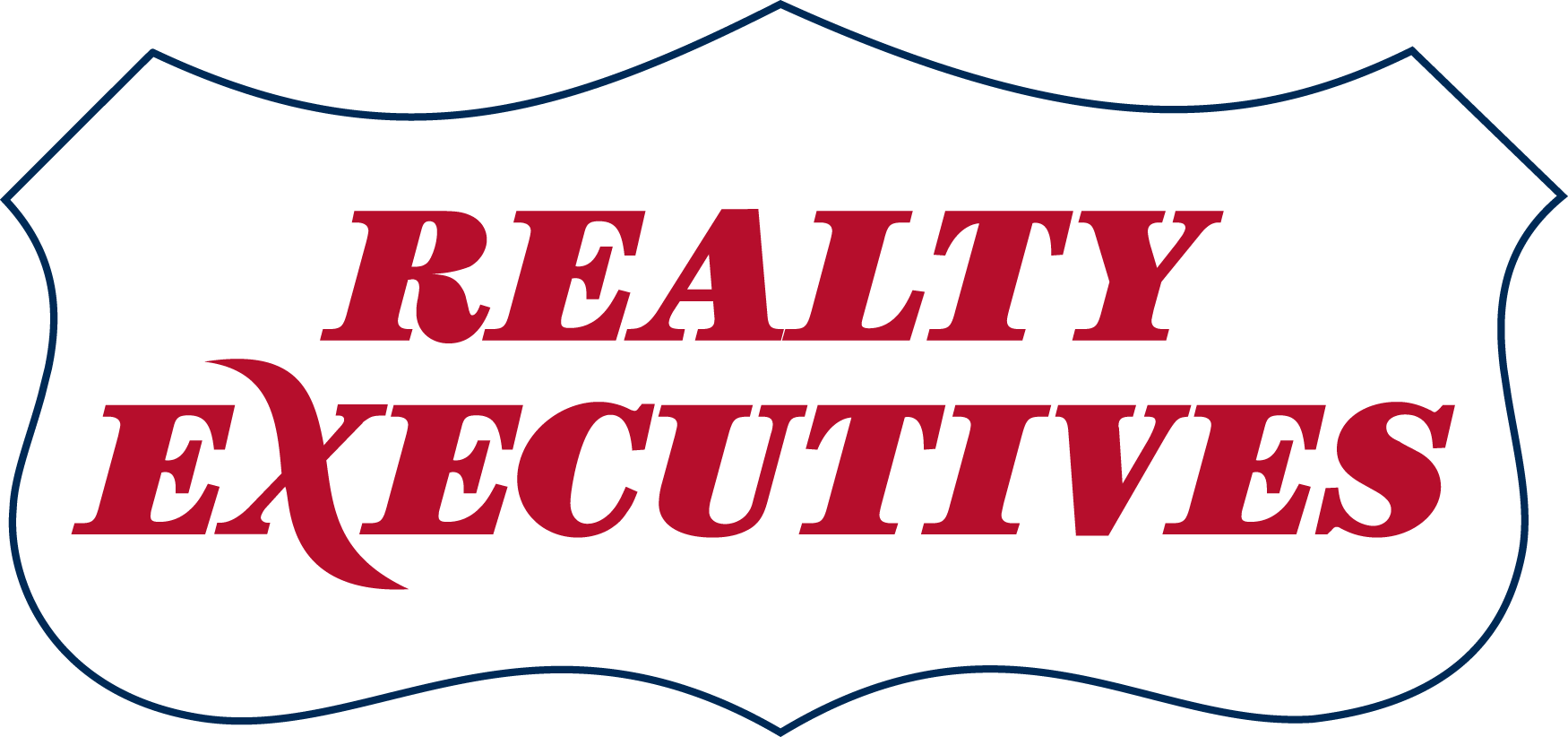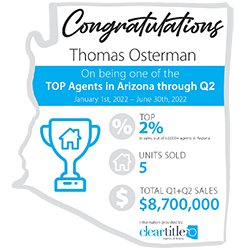Real Estate Terms
A
Acceleration Clause
A provision in a mortgage that gives the lender the right to demand payment of the entire principal balance, if a monthly payment is missed.
Additional Principal Payment
A payment by a borrower of more than the scheduled principal amount due in order to reduce the remaining balance on the loan.
Adjustable-Rate Mortgage (ARM)
A loan for which the interest rate is periodically subject to change based on changes in a specified index. Interest rates may move up or down, as market conditions change.
Adjusted Basis
The original cost of a property plus the value of any capital expenditures for improvements to the property minus any depreciation taken.
Adjustment Date
The date on which the interest rate changes for an adjustable-rate mortgage (ARM).
Adjustment Period
The period that elapses between the adjustment dates for an adjustable-rate mortgage (ARM).
Amortization
A payment plan by which a loan is reduced through monthly payments of principal and interest.
Amortization Schedule
Shows the amount of each payment applied to interest and principal and the remaining principal balance after each payment is made.
Annual Percentage Rate (APR)
The annual cost of a mortgage over the life of a loan including interest, service charges, points, loan fees, mortgage insurance and other items.
Appraisal
An opinion of a property’s fair market value, based on an appraiser’s knowledge, experience and analysis of the property.
Appreciation
An increase in the value of a property; the opposite of depreciation.
Assessed value
A valuation placed on property by a public tax assessor for purposes of taxation.
Assessment
The process of placing a value on property for the strict purpose of taxation or the tax levied on the property by a taxing authority.
Assessor
A public official who establishes the value of a property for taxation purposes.
Assignment
The transfer of a mortgage from one person to another.
Assumable mortgage
A mortgage that can be taken over (“assumed”) by the buyer when a home is sold. The loan does not need to be paid in full by the original borrower upon sale or transfer of the property.
Attorney-In-Fact
One who holds a power of attorney from another to execute documents on behalf of the grantor of the power.
B
Balloon Mortgage
A mortgage that has a series of monthly payments with the remaining principal balance due in a lump sum (balloon payment) at the end.
Beneficiary
The person designated to receive the income from a trust, estate or a deed of trust.
Bridge Loan
A loan obtained by a homeowner who has not yet sold and existing property for use in closing on a new property. Also known as “swing loan.”
Broker
A real estate professional that has a higher level of training than an agent. A broker is the legal representative and/or manager of the office. The term may also refer to the company or brokerage under which an agent is licensed.
Building Code
Local regulations that control design, construction and materials used in construction. Building codes are based on safety and health standards.
Buy Down
A subsidy (usually by a builder) to reduce the monthly payments on a mortgage loan.
C
Cap
A limit to the amount an interest rate or a monthly payment can increase or decrease for an adjustable-rate mortgage (ARM) either during an adjustment period or over the life of the loan.
Closing
The completion of documents that transfer property from a seller to a buyer (also referred to as a settlement).
Closing Costs
Charges paid at closing for obtaining a mortgage loan and transferring title to real estate.
Cloud on Title
Any conditions revealed by a title search that adversely affect the title to real estate.
Collateral
An asset (such as a car or a home) that guarantees the repayment of a loan.
Co-maker
A person who signs a promissory note along with the borrower. A co-maker’s signature guarantees that the loan will be repaid, because the borrower and the co-maker are equally responsible for the repayment
Commission
The fee paid to a real estate agent/broker for services rendered during the sale or purchase of a home. Usually a percentage of the property’s sale price.
Commitment Letter
A formal written communication by a lender, agreeing to make a mortgage loan on a specific property indicating loan amount, length of time and other terms and conditions. See mortgage commitment.
Community Property
A form of ownership in which each spouse holds and undivided one-half interest in the estate, unless acquired as separate property of either spouse.
Community Property With Right of Survivorship
A form of ownership in which each spouse holds and undivided one-half interest in the estate (unless acquired as separate property of either spouse) and the estate passes to the surviving spouse outside of probate.
Comparative Market Analysis (CMA)
A survey of attributes and selling prices of comparable homes listed for sale or recently sold; used to help determine correct pricing strategy for seller’s property.
Conditions, Covenants and Restrictions (CC&Rs)
The standars that define how a property can be used and the protections the developer makes for the benefit of all owners in a subdivision.
Compound Interest
Interest paid on the original principal balance and on the accrued and unpaid interest.
Condemnation
The taking of private property for a public purpose through an exercise of the right of eminent domain.
Condominium
Type of real estate ownership where the owner has title to a specific unit and shared interest in common areas.
Condominium Conversion
Changing the ownership of an existing building (usually a rental project) to the condominium form of ownership.
Contingency
A condition in a contract that must be met before a contract is legally binding.
Contract
An agreement to do or not to do a certain thing.
Conventional Mortgage
A mortgage loan made by a lender to a borrower that requires no insurance or guarantee.
Convertible ARM
An adjustable-rate mortgage that can be converted to a fixed-rate mortgage under specific circumstances.
Cooperative (co-op)
A type of multiple ownership in which the residents of a multiunit housing complex own shares in the cooperative corporation that owns the property, giving each resident the right to occupy a specific apartment or unit.
Cooperate
A standard of practice in real estate in which brokers or sellers agree to share a commission with a buyer’s broker.
Cost of Funds Index (COFI)
An index that is used to determine interest rate changes for certain adjustable-rate mortgages. It represents the weighted-average cost of savings, borrowings and advances of the 11th District members of the Federal Home Loan Bank of San Francisco.
Counteroffer
An offer made in response to an offer received.
Credit
A person’s reputation for solvency and integrity; allowing a borrower to receive something of value in exchange for a promise of repayment.
Credit History
A record of an individual’s current and past debt obligations. Helps a lender to determine a potential borrowers ability to repay a debt in a timely manner.
Creditor
A person to whom money is owed.
Credit Report
A report prepared by a credit bureau of an individual’s credit history and used by a lender to determining if a borrower is a good credit risk.
Credit Reporting Agency (or bureau)
An organization that gathers, records, updates and stores financial and public records information of individuals who are being considered for credit.
Credit Score
A statistical methodology for determining a potential borrower’s ability to repay a loan. The higher the crdit score, the more likely a borrower can qualify for a loan with a good interest rate.
D
Debt
Something owed. An obligation to pay something.
Debt-To-Income-Ratio
A comparison of gross income to expenses (both housing and non-housing)
Deed
Legal document that formally conveys title/ownership of property from seller to buyer.
Deed-in-Lieu
A deed given by a borrower to a lender to satisfy a debt and avoid foreclosure.
Deed of Trust
A document used instead of a mortgage; title is conveyed to a trustee.
Deed Restrictions
Legally binding rules for the building of homes
Default
Failure to make mortgage payments on a timely basis or to comply with other requirements of a mortgage.
Delinquency
Failure to make mortgage payments when mortgage payments are due.
Deposit
A sum of money given to bind the sale of real estate.
Depreciation
A decline in the value of property; the opposite of appreciation.
Discount Points
A fee paid to a lender by a borrower to get a lower interest rate on a mortgage loan.
Down Payment
The portion of the purchase price the buyer pays in cash.
Due-on-Sale Provision
A provision in a mortgage requiring the borrower to repay the entire outstanding balance upon sale or transfer of the property.
E
Earnest Money Deposit
A deposit made by the buyer at the time of the offer to show s/he is serious about buying.
Easement
A right-of-way giving persons other than the owner access to or over a property.
Eminent Domain
The right of a government to take private property for public use upon payment of its fair market value. Eminent domain is the basis for condemnation proceedings.
Encroachment
An improvement that intrudes illegally on another’s property.
Encumbrance
Anything that affects or limits the fee simple title to a property, such as mortgages, leases, easements or restrictions.
Equal Credit Opportunity Act (ECOA)
A federal law that requires lenders and other creditors to make credit equally available without discrimination based on race, color, religion, national origin, age, sex, marital status, or receipt of income from public assistance programs.
Equity
The difference between the value of a property and what is owed on it.
Escrow
The handling of funds or documents by a third party on behalf of the buyer and seller.
Escrow Analysis
The periodic examination of escrow accounts to determine if current monthly deposits will provide sufficient funds to pay taxes, insurance and other bills when due.
Estate
The total of all the real and personal property owned by an individual either currently or at time of death.
Eviction
The lawful expulsion of an occupant from real property.
Exclusive Listing
A written contract giving a broker the exclusive right to sell a property for a specified time period.
Executor
A person named in a will to administer an estate. The court will appoint an executor if none is named. “Executrix” is the feminine form.
F
Fair Credit Reporting Act
A consumer protection law that regulates the disclosure of consumer credit reports by consumer/credit reporting agencies and establishes procedures for correcting mistakes on one’s credit record.
Fair Market Value
The highest price that a willing buyer would pay and the lowest price a willing seller would accept.
Fannie Mae
A New York Stock Exchange company and the largest non-bank financial services company in the world. It operates pursuant to a federal charter and is the nation’s largest source of financing for home mortgages.
Federal Housing Administration (FHA)
An agency of the U.S. Department of Housing and Urban Development (HUD). It insures loans made by an approved lender, as long as the loan is in accordance with FHA regulations.
Fee Simple
The greatest possible interest a person can have in real estate.
Fiduciary Duties
Obligations owed by one to another. In real estate these include loyalty, obedience, full disclosure, skill, care, diligence and accounting of all monies.
Fixed-Rate Mortgage (FRM)
A mortgage in which the interest rate is fixed over the life of the loan.
Fixture
Personal property (like a chandelier, kitchen cabinet or built-in shelves) that becomes real property when attached to real estate.
Flood Insurance
Required for properties located in federally designated flood areas.
Foreclosure
The legal process whereby a borrower, in default under a mortgage, loses its interest in the mortgaged property. This usually involves a forced sale of the property at public auction.
G
Government National Mortgage Association
A government-owned corporation within the U.S. Department of Housing and Urban Development (HUD). Created by Congress on Sept. 1, 1968, GNMA assumed responsibility for the special assistance loan program formerly administered by Fannie Mae. Also known as Ginnie Mae.
Grace Period
A specified amount of time during which a loan payment may be made after its due date, without incurring a late penalty.
Grantee
The person to whom an interest in real property is conveyed.
Grantor
The person conveying an interest in real property.
Growing-Equity Mortgage (GEM)
A fixed-rate mortgage that provides scheduled payment increases over an established period of time, with the increased amount of the monthly payment applied directly toward reducing the remaining balance of the mortgage.
H
Hazard Insurance
Insurance coverage that compensates for physical damage to a property from fire, wind, vandalism, or other hazards.
Home Equity Line of Credit (HELOC)
A mortgage loan secured by the equity in a home.
Homeowners’ Association
A nonprofit association that manages the common areas of a planned unit development (PUD) or condominium project.
Homeowner’s Insurance
An insurance policy that combines personal liability insurance and hazard insurance coverage for a dwelling, its contents and inhabitants.
Homeowner’s Warranty
Insurance that covers repairs to specified parts of a house for a specific period of time.
HUD-1 Statement
A document that provides an itemized listing of the funds that are payable at closing. Items that appear on the statement include real estate commissions, loan fees, points and initial escrow amounts. Each item on the statement is represented by a separate number within a standardized numbering system. The totals at the bottom of the HUD-1 statement define the seller’s net proceeds and the buyer’s net payment at closing. The blank form for the statement is published by the Department of Housing and Urban Development (HUD). The HUD-1 statement is also known as the “closing statement” or “settlement sheet.”
I
In Contract
The condition when a buyer and seller have agreed on a price, terms and conditions for the sale of property and have signed a purchase contract.
Index
A number used to compute the interest rate for an adjustable-rate mortgage (ARM). The index is generally a published number or percentage, such as the average interest rate or yield on Treasury bills. A margin is added to the index to determine the interest rate that will be charged on the ARM.
Interest
The fee charged for borrowing money.
IRA (Individual Retirement Account)
A retirement account that allows individuals to make tax-deferred contributions to a personal retirement fund. Individuals can place IRA funds in bank accounts or in other forms of investment such as stocks, bonds or mutual funds.
J
Joint Tenancy With Right of Survivorship
A form of ownership in which each joint tenant holds an equal and undivided interest in the estate and the estate passes to the surviving joint tenant outside of probate.
Judgment
A decision made by a court of law. In judgments that require the repayment of a debt, the court may place a lien against the debtor’s real property as collateral for the judgment’s creditor.
Judicial Foreclosure
A type of foreclosure proceeding that is handled as a civil lawsuit and conducted entirely under the auspices of a court.
Jumbo Loan
A loan that exceeds Fannie Mae’s mortgage amount limits. See nonconforming loan.
L
Late Charge
The penalty a borrower must pay when a payment is made after the due date or grace period, if there is one.
Lease
A written agreement between the property owner and a tenant that stipulates the conditions under which the tenant may possess the real estate for a specified period of time and rent.
Leasehold Estate
A way of holding title to a property wherein the mortgagor does not actually own the property but rather has a recorded long-term lease on it.
Legal Description
A property description, recognized by law that is sufficient to locate and identify the property without oral testimony.
Liabilities
A person’s financial obligations. Liabilities include long-term and short-term debt, as well as any other amounts that are owed to others.
Liability Insurance
Insurance coverage that offers protection against claims alleging that a property owner’s negligence or inappropriate action resulted in bodily injury or property damage to another party.
Lien
A security claim against a property until debt is satisfied.
Lifetime Payment Cap
For an adjustable-rate mortgage (ARM), a limit on the amount that payments can increase or decrease over the life of the mortgage. See cap.
Lifetime Rate Cap
For an adjustable-rate mortgage (ARM), a limit on the amount that the interest rate can increase or decrease over the life of the loan. See cap.
Line of Credit
An agreement by a commercial bank or other financial institution to extend credit up to a certain amount for a certain time to a specified borrower. See home equity line of credit.
List Price
The asking price of a home, which is typically negotiable with a potential buyer.
Listing Agreement
An agreement whereby an owner engages a broker for a specified period of time to market a property for which (upon sale) the broker receives a commission.
Liquid Asset
Cash or an asset that is easily converted into cash.
Loan
A sum of borrowed money (principal) that is generally repaid with interest.
Loan-To-Value (LTV) Percentage
The ration between the principal balance of the mortgage and the appraised value or sales price) of the property.
Lock-in
A written agreement in which the lender guarantees a specified interest rate if a mortgage goes to closing within a set period of time. See rate lock.
Lock-in Period
The time period during which the lender has guaranteed an interest rate to a borrower.
M
Margin
For an adjustable-rate mortgage (ARM), the amount that is added to the index to establish the interest rate on each adjustment date, subject to any limitations on the interest rate change.
Maturity Date
The date on which the principal balance of a loan, bond or other financial instrument becomes due and payable.
Mortgage
A legal document that pledges a property to the lender as security for payment of a debt.
Mortgage Banker
A company that originates mortgages and typically services the loan.
Mortgage Broker
A company that represents numerous lenders and facilitates a loan from a lender to a borrower. Mortgage brokers typically charge a fee or a commission for their services.
Mortgage Commitment
A formal written communication by a lender, agreeing to make a mortgage loan on a specific property indicating loan amount, length of time and other terms and conditions. See commitment letter.
Mortgagee
The lender in a mortgage agreement.
Mortgage Insurance
A contract that insures the lender against loss caused by a mortgagor’s default on a loan. Mortgage insurance can be issued by a private company or by a government agency such as the Federal Housing Administration (FHA).
Mortgage Insurance Premium (MIP)
The amount paid by a mortgagor for mortgage insurance, either to a government agency such as the Federal Housing Administration (FHA) or to a private mortgage insurance (MI) company.
Mortgage Life Insurance
A life insurance policy whereby a mortgage debt is automatically satisfied by insurance proceeds.
Mortgagor
The borrower in a mortgage agreement.
Multiple Listing Service (MLS)
A system that provides to its members detailed information about properties for sale
N
National Association of Realtors (NAR)
A national trade organization of more than one million real estate agents and brokers, known as REALTORS®.
Negative Amortization
An increase in the outstanding mortgage debt that occurs when the monthly payment is not large enough to cover the interest due. The amount of the shortfall is added to the remaining principal balance (increasing the balance), creating “negative” amortization.
Nehemiah Loan
A California based, private down payment assistance program that allows one to purchase a home with no down payment when combined with an FHA loan.
Net Cash Flow
The income that remains for an investment property after all expenses are subtracted from the gross income.
Net Worth
The total value of all of a person’s assets, minus all liabilities.
Non-liquid Asset
An asset that cannot easily be converted into cash.
Non-conforming Loan
A loan that does not comply with Federal National Mortgage Association (Fannie Mae) or Federal Home Loan Mortgage Corporation (Freddie Mac) underwriting guidelines.
Note
An agreement that obligates a borrower to repay a loan, stating the terms of repayment.
Notice of Default
A formal written notice to a borrower that a default has occurred and that legal action may be taken.
O
Original Principal Balance
The total amount of principal owed on a mortgage before any payments are made.
Origination Fee
A fee paid to a lender for processing a loan application. The origination fee is stated in the form of points. One point equals 1 percent of the mortgage amount.
Owner Financing
A transaction in which the property seller provides all or part of the financing.
P
P.I.T.I.
Principal, interest, taxes and insurance; the four major components of a monthly housing payment.
Partial Payment
A payment that is not sufficient to cover the scheduled monthly payment on a mortgage loan.
Payment Change Date
The date when a new monthly payment amount takes effect on an adjustable-rate mortgage (ARM). Generally, the payment change date occurs in the month immediately after the adjustment date.
Periodic Payment Cap
For an adjustable-rate mortgage (ARM), a limit on the amount that payments can increase or decrease during any one adjustment period.
Periodic Rate Cap
For an adjustable-rate mortgage (ARM), a limit on the amount that the interest rate can increase or decrease during any one adjustment period.
Personal Property
Any property that is not real property.
Planned Unit Development (PUD)
A subdivision that includes common property, owned and maintained by a homeowners’ association for the benefit and use of the individual PUD unit owners.
Point
A one-time charge paid by the borrower to receive a lower interest rate. One point equals 1 percent of the mortgage amount.
Power of Attorney
A legal document that authorizes a person to act on one’s behalf. A power of attorney can grant complete authority or can be limited to certain acts and/or certain periods of time.
Pre-approval
A mortgage approval obtained before negotiating a contract on a specific property.
Pre-foreclosure Sale
When a mortgagee allows a mortgagor to avoid foreclosure by selling the property prior to the scheduled foreclosure sale.
Prepayment Penalty
A fee charged to a borrower who pays off a loan before its maturity date.
Pre-qualification
The process of determining how much financing a potential borrower will qualify for prior to applying for a loan.
Prime Rate
The interest rate banks charge to their preferred customers.
Principal
The amount borrowed, excluding interest or other charges.
Principal Balance
The outstanding balance of a loan.
Private Mortgage Insurance (PMI)
Insurance required on most conventional loans with less than 20 percent down payment to protect the lender against default.
Promissory Note
An agreement (or promise) that obligates a borrower to repay a loan, stating the terms of repayment.
Possession Date
The day on which a property’s new owner is entitled to occupy the property.
Property Tax
A tax levied on real property based on the assessed value.
Purchase and Sale Agreement
A written contract signed by a buyer and seller stating the terms and conditions under which a property will be sold.
Q
Qualifying Ratios
Calculationsused in determining whether a borrower can qualify for a mortgage. The first compares income-to-housing (without including long-term debt), while the second includes all debts.
Quitclaim Deed
A deed that transfers (without warranty) whatever interest or title a grantor may have at the time the conveyance is made.
R
R Value
The resistance of insulation material (including windows) to heat passing through it. The higher the number, the greater the insulating value.
Radon
A radioactive gas found in some homes that in sufficient concentrations can cause health problems.
Rate Lock
A written agreement in which the lender guarantees a specified interest rate if a mortgage goes to closing within a set period of time. See lock-in.
Real Estate Agent
A person licensed to negotiate and transact the sale of real estate on behalf of the property owner. An agent’s license “hangs” under a broker.
Real Estate Settlement Procedures Act (RESPA)
A HUD consumer protection statute designed to help homebuyers be better shoppers in the home buying process. RESPA is about closing costs and settlement procedures. It requires that consumers receive disclosures at various times in the transaction and outlaws kickbacks that increase the cost of settlement services.
Real Property
Land and appurtenances, including anything of a permanent nature such as structures, trees, minerals and the interest, benefits and inherent rights thereof.
REALTOR®
A real estate broker or agent who holds active membership in a local real estate board and the National Association of Realtors (NAR). A REALTOR® subscribes to the Code of Ethics.
Rescission
The cancellation of a transaction or contract by operation of law or by mutual consent. Borrowers usually have the option to cancel a refinance transaction within three business days after it has closed.
Recording
The process of registering the deed and other documents with the county recorder, thereby making it a part of the public record.
Refinance
The process of paying off one loan with the proceeds from a new loan using the same property as collateral.
Remaining Principal balance
The outstanding balance of a loan. See principal balance.
Reverse Mortgage
A loan that enables a homeowner to borrow against the equity in their house. Repayment occurs at the time the house is sold.
Right of First Refusal
A provision in an agreement that requires the owner of a property to give another party the first opportunity to purchase or lease the property before it is offered for sale or lease to others.
Right of Survivorship
The right of survivors to acquire the interest of a deceased joint tenant.
S
Sale-leaseback
A technique in which a seller deeds property to a buyer for a consideration, and the buyer simultaneously leases the property back to the seller.
Second Mortgage
A mortgage that has a lien position subordinate to the first mortgage.
Secondary Mortgage Market
The buying or selling of existing mortgages.
Secured Loan
A loan that is backed by collateral.
Security
The property that will be pledged as collateral for a loan.
Seller Carry-back
A sale of property in which the seller provides financing using the property as collateral. See owner financing.
Servicer
A company that collects payments from borrower and manages the escrow account.
Settlement
See closing.
Settlement Statement
See HUD-1 statement.
Subdivision
A development that is created by dividing a tract of land into individual lots for sale or lease.
Subordinate Financing
Any mortgage or other lien that is junior to the first mortgage.
Survey
A drawing or map showing the precise legal boundaries of a property, the location of improvements, easements, rights of way, encroachments and other physical features.
Sweat Equity
Contribution to the construction or rehabilitation of a property in the form of labor rather than cash.
T
Tenancy in Common
A form of ownership in which each tenant holds an undivided fractional interest in the estate.
Title
A legal document evidencing a person’s right to or ownership of a property.
Title Company
A company that specializes in examining and insuring titles to real estate.
Title Insurance
Insurance that protects the lender (lender’s policy) or the buyer (owner’s policy) against loss arising from disputes over ownership of a property or defects in the title.
Title Search
A check of public or other records to determine the legal ownership of property and whether there are any liens or encumbrances affecting the property.
Tri-merged Credit Report
A credit report that combines information from three credit bureaus.
Truth-in-Lending
A federal law that requires lenders to fully disclose, in writing, the terms and conditions of a mortgage, including the annual percentage rate (APR) and other charges.
U
Underwriting
The process of evaluating a loan application to determine the risk involved for the lender. Underwriting involves an analysis of the borrower’s credit worthiness and the quality of the property itself.
Unsecured Loan
A loan that is not backed by collateral.
V
VA Mortgage
A mortgage that is guaranteed by the Department of Veterans Affairs (VA).
Vested
Denotes ownership.
Veterans Administration (VA)
A government agency that guarantees mortgages loans for eligible veterans of the military services. The guarantee protects the lender against loss, which encourages lenders to make mortgages to veterans.
W
Walk-through
A final inspection of a home (prior to closing) to ensure all repairs have been made and that the home is in substantially the same condition at it was at the time the purchase and sal agreement was executed.
Z
Zoning
Regulations established by local governments regarding the use of any given piece of property within a specific area
REAL ESTATE SEARCH
Real Estate Search
Connect with THOMAS Right Now






